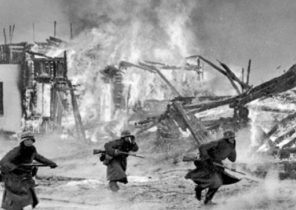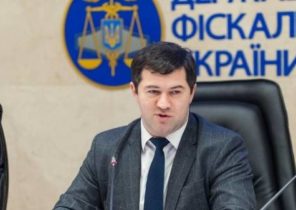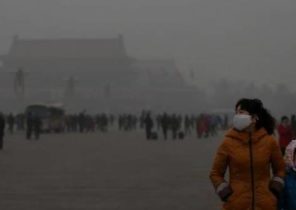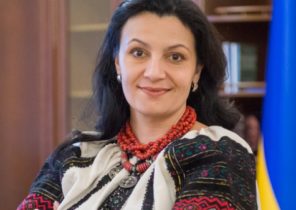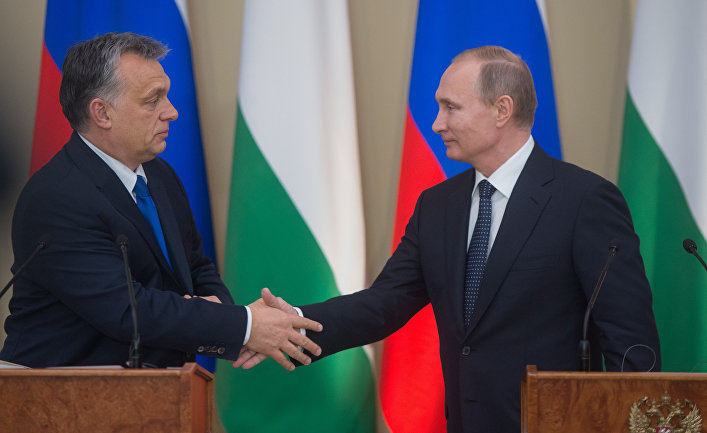
Russian President Vladimir Putin is going to make Thursday a rare visit to the European Union. Chosen country — Hungary — indicates a change in Russian policy in Europe after the inauguration of Donald trump as President of the United States.
After Viktor Orban became Prime Minister of Hungary in 2010, the Russian President met several times with the Hungarian leader. The last time Vladimir Putin visited Budapest in early 2015, and it was his first visit to the country of the European Union after the annexation of Crimea and the outbreak of war in the Eastern regions of Ukraine.
But this year the visit takes place during subtle changes to the Kremlin’s perception of Hungary. Putin began to treat Orban as leader of the eurosceptic, capable of playing on the European stage. The Russian President hopes that Hungary will be able to formally seek the abolition of EU sanctions.
“Over the past two years, the importance of Orban to Russia has increased, said Andreas Deak (András Deák), senior researcher of Institute of world Economics at the Hungarian Academy of Sciences. — During migrant crisis, he has demonstrated that it can improve your level in European politics, and became a kind of alternative to the basic liberalism of the European Union”.
“The first driving force for the lifting of sanctions”
For the Kremlin, public visit to Budapest at this time has a double symbolic and political significance. Putin wants to show the Russian people that Russia is a world superpower. Moreover, the Kremlin looks forward to working closely with the new American administration and to improve relations with European partners, and given that Moscow hopes to show that Russia is not a pariah.
“Budapest is one of the few EU capitals, where Putin can feel comfortable and meet with those who had shared his world, said Dmitry Trenin, Director of the Carnegie Moscow Center. — This attitude allows Moscow to argue that not all Europeans are following the boycott of Russia.”
The formal agenda of the meeting of Orban with the Russian leader is very broad and includes such issues as the construction of a nuclear power plant “Paks-2”, commissioned by Hungary, Russia and to inspire fear in the supporters of energy independence of the EU from Russia. But the priority for Putin and his party remains the clarification and strengthening of the negative attitude of the Orban to the European sanctions against Russia.
“Russia hopes that Orban would oppose sanctions, not only in words. For Russians it is important to find a European country, which will be the first driving force behind the lifting of sanctions,” said Deak.
Whether this will happen in fact is another question. “It is unclear whether Orban to act in this direction,” said Deak.
Although Orban has expressed disagreement with the imposition of EU sanctions over the Russian intervention in the Ukrainian conflict, nor the Hungarians, nor the other opponents of sanctions, including Cyprus, Greece and Italy, tried to prevent the extension of these restrictions. When it was time to renew the sanctions, the EU left them in force. Germany set the tone, and no one wanted to break the unity and to veto.
The arrival of the White house administration trump gave Russia hope that by easing the pressure of Washington, some European countries will actively seek to mitigate the sanctions against Russia. But if trump will lift sanctions partially or completely, the EU would be very difficult to maintain unity.
“We have repeatedly expressed their opposition, but did not veto, and would not want to undermine the unity of the EU, said the Minister of foreign Affairs of Hungary Peter Siyyarto, the Russian newspaper Kommersant in an interview published on January 24. — We were not alone, these countries were several. But that day, when I had to make a decision, we were alone.”
The foreign Minister expressed “hope” for the lifting of sanctions, noting that much depends on the further development of Russian-American relations.
Victor and Vlad
After coming to power in 2010, Orban has tried to strengthen relations with Russia. And the election of the President of the United States Donald trump, it seems, has provided a new opportunity for Hungary and Budapest’s relations with Moscow.
The Hungarian leader welcomed the election of trump and said that it marked a new era when countries can put first their interests. “The era of multilateral relations came to an end, and in its place comes a time bilateral relations,” he said in a speech on January 23.
According to Orban, the world is entering a new paradigm of existence of multiple centers of power. The Prime Minister believes that this new paradigm means for each European country the freedom to choose the nature of their relations with Moscow. “It is unwise — especially for Europe — is to ignore the power and possibilities posed by Russia,” he said.
Meanwhile, the neighbours of Hungary, closely watching the friendly gestures of Budapest and Russia’s actions in the region. Particularly concerned about Ukraine, the Eastern neighbour Hungary, which will lose from a rapprochement between the USA with Russia and the abolition of Western sanctions.
“We hope that bilateral negotiations Hungary and Russia will not allow the leaders of friendly neighbouring Hungary to close my eyes to the need to hold accountable those who have committed aggression against Ukraine,” said Ivanna klympush-Tsintsadze, Deputy Prime Minister of Ukraine for European and Euro-Atlantic integration. “You can’t sell value for the business and economic interests in these relations,” she added.
Hungarian officials said that problems in the sphere of Ukraine’s security are not the only consideration.
The annexation of the Crimean Peninsula, without doubt, was a flagrant violation of international law, said the Deputy of the Hungarian Parliament görgey Goulash (Gulyás Gergely), the representative of the party Viktor Orban, Fidesz. But “the sanctions have caused great damage not only Russia but also Hungary, together with the entire European economy, he said. — Sanctions have not led to a real solution”.
Economic relations of Hungary with Russia largely revolve around the expansion project of the nuclear power plant “Paks”, which will carry the Russian state company “Rosatom”. Russia has provided its Hungarian partners for a loan in the amount of ten billion dollars, and the Hungarian government chose to draft a Russian company without a tender.
Political leaders in Central Europe hope that the close relations of Hungary with Russia will not become a real threat in the security sphere.
“If you look purely from a defensive point of view, Hungary is a responsible ally, properly participating in the collective security of NATO, said Yang Hires (Jan Jireš), Director of the Ministry of defence of the Czech Republic on defence policy. He noted that he sees “the effect of friendships Orban with Putin on how Hungary is valid in NATO.”
Despite this, the victory trump, who called NATO “legacy” forced governments in the region to reconsider their priorities.
“Until now, the dilemma of Central European countries was as follows: US distant, but reliable, and Russia is close, but unpredictable, said mark Galeotti (Mark Galeotti), an expert on Russian politics and research fellow at the Prague Institute of international relations. —From now on, Putin will position itself in the region as an adult”.
The Hungarian opposition
In Budapest, Putin will meet with protests and a population that, despite the relative popularity of the Orban government in Hungary, not too actively supports Russia. The representatives of the Hungarian opposition fear that Orban imitate their Russian partners, especially in terms of exerting pressure on Hungarian media. The opposition also fears the announced plans of the government to take tough measures against non-profit organizations.
Critics Express concern about the risk to national security associated with the expansion of the nuclear power plant “Paks”. Some opponents also say that Russia is engaged in disinformation in Hungarian media, and it testifies to the Kremlin’s attempts to influence public opinion.
“This is the wrong path for our country”, — said Victor of Ligetvari, Chairman of the opposition party “Together” (Együtt). His party was going to hold protests in front of Parliament during Putin’s visit, but the counter-terrorism division of the TECH warned that the locks district, though the opposition has received permission for the demonstration. “We need better relations with Western partners,” he said.


